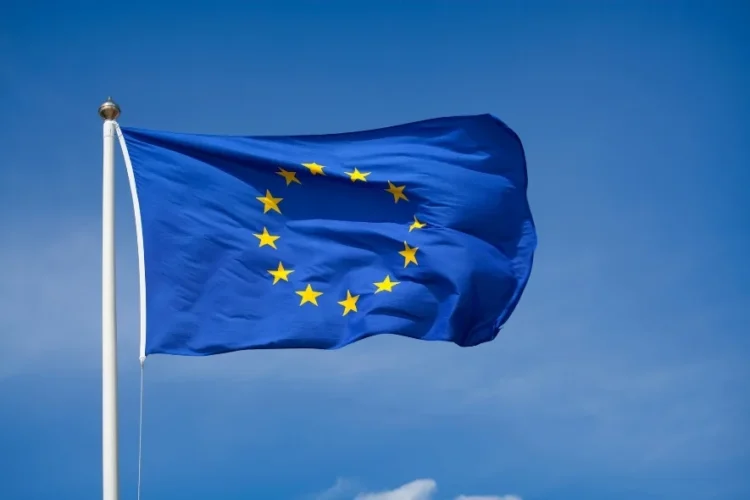…Reiterates commitment to strengthen long-standing partnership
The Chairman of the European Parliament’s Committee on Foreign Affairs, David MacAllister on Monday declared the importance of Nigeria to the bloc, stating that Nigeria “matters” to us.
He also reiterated the bloc’s commitment to strengthening its long-standing partnership with Africa’s largest democracy, Nigeria.
MacAllister, who led a six-member European Parliament delegation on an official visit to Nigeria on Monday, after a meeting with the Nigeria’s Minister of Foreign Affairs, Ambassador Yusuf Tuggar disclosed that their mission to Nigeria was designed to deepen mutual understanding, explore new areas of collaboration, and reinforce political and economic ties between both sides.
He said: “We are a delegation of the European Parliament’s Foreign Affairs Committee, We are six members in total from five different countries, from three different political groups in the European Parliament. And this shows a cross-party interest in further deepening and strengthening the relations between the European Union and Nigeria.”
MacAllister while describing Nigeria as a strategic partner whose influence on the continent and beyond makes it an indispensable ally in shaping Africa–EU relations, said: “Nigeria is considered as a strategic partner for the European Union. “We have a long-lasting, good and close relationship based on shared values and also on joint interests.”
He noted that the visit was part of the Parliament’s tradition of engaging directly with partner nations to better understand their challenges and opportunities.
He said: “The European Parliament’s Foreign Affairs Committee travels with smaller delegations a few times a year to other parts of the world,” adding that: “We mainly travel to get to know better the countries, to understand better the challenges these countries are facing, and also the opportunities these countries have. And we are also there to very carefully listen.”
MacAllister while expressing appreciation to Nigeria’s Minister of Foreign Affairs for hosting the delegation, noted that their discussion was insightful and covered a broad range of regional and global issues.
He said: “It was a great honour for us to be received by the Honourable Minister. His Excellency took more than one and a half hours of his precious time to really go into detail with many, many questions we had as regards the further development of the African Union, the further development of ECOWAS, and the developments in all neighbouring countries of Nigeria.”
He said the dialogue also reflected a shared interest in understanding the trajectories of both regions, stating that: “The Minister was also very interested in finding out how the further developments of the European Union will look like.”
He said: “Because just like Nigeria, just like ECOWAS, we in the European Union, of course, are also facing enormous challenges.”
He reaffirmed that Nigeria remains a vital partner in Europe’s engagement with Africa, stating that: “To sum up in one sentence — Nigeria matters. Nigeria matters for us in the European Union, and we in the European
Parliament is very keen to deepen the strategic partnership with Nigeria. And this will be our message when we go back home to Brussels.”
Responding, Nigeria’s Minister of Foreign Affairs, Ambassador Yusuf Tuggar, welcomed the lawmakers to the Ministry of Foreign Affairs, describing the European Union as a critical partner in trade, security, and development.
He said: “Any visit from the European Union has to be considered very important because Europe still remains our largest trading partner,” adding that: “Figures may vary, but it is not less than 31.8 billion euros.”
He described Europe and Africa as “natural neighbours,” emphasizing that geography should unite rather than separate the two continents.
He said: “For those who understand a bit of Latin, ‘Mediterranean’ means ‘water in the middle of land. So where Europe is concerned in its relations to Africa, what we have is water in the middle of land—we are closer than we imagine.”
He noted that Nigeria’s partnership with the EU extends beyond trade, touching on regional stability, food security, and job creation.
Tuggar said: “President Bola Ahmed Tinubu emphasizes food security as his number one priority because we are a nation of 230 million people, expected to become 400 million by 2050. We are in a race against time to create jobs, feed our people, and ensure our population is healthy.”
He added that Nigeria’s recent inclusion as the 77th shareholder of the European Bank for Reconstruction and Development reflects its commitment to global economic cooperation.
He saud: “We have a lot of lessons to learn from the European Union, which itself is still integrating. It gives us hope and serves as a model that we seek to emulate. We will continue to strengthen our collaboration with the EU in all areas.”
Other members of the European Parliament delegation included Christophe Thomas (France), Jaliana Lefebvre (Croatia), Marta Emigo (Portugal), and Tim Kenan (Finland).















